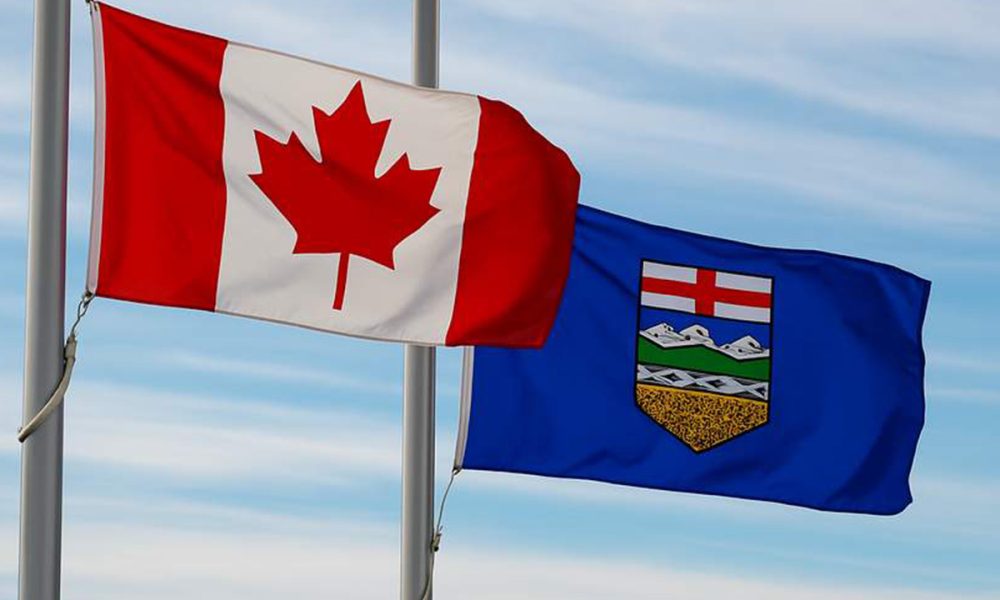

Canada
Hawks Talon GC Lose To Warriors Gaming Squad in Seventh Game of 2020 Season
Atlanta’s Own KEL (Mykel Wilson) Scores Career-High 32 Points in Loss to Warriors Gaming Squad
Hawks Talon Gaming Club, the official NBA 2K League affiliate of the Atlanta Hawks, lost two games to Warriors Gaming Squad, the official affiliate of the Golden State Warriors, in front of an international viewing audience. The results of each game were 69-73 (OT) and 66-89 in the best-of-three series.
“Credit to Warriors Gaming Squad. They never let up throughout the entire night, and it’s why they came away with the victory,” Hawks Talon GC’s Team Manager and Head Coach Wesley Acuff said. “Tomorrow night, we are back at it, and we look forward to bringing our best against another very talented team in Jazz Gaming.”
In the first game that was decided by overtime, Atlanta’s own KEL (Mykel Wilson) led the team with a career-high 32 points. Hawks Talon’s BP (Michael Diaz-Cruz) finished with 21 points, a team-high nine assists and two steals. FOLLOWTHEGOD (Kwan Niblack Jr.) contributed with 11 points, two rebounds and a team-high three steals and two blocks, while LEE (Lee Lamb) totaled five points, a team-high 13 rebounds and three assists. Rounding out the group was MRSTYLEZ (Andrew Valle) who finished with five rebounds and two steals.
In the second game, Hawks Talon’s BP scored a team-high 29 points and added four assists. LEE recorded another double-double after tallying 12 points, 12 rebounds and three blocks. This performance extends his streak to 15 games with at least 10 rebounds. FOLLOWTHEGOD tallied nine points, MRSTYLEZ recorded eight points, five rebounds and four assists, while KEL added eight points and four assists.
Hawks Talon (3-4) will continue its remote gameplay for at least three more weeks. The club’s next match will occur at 9 p.m. ET on Tuesday, June 30 against Jazz Gaming, the official affiliate of the Utah Jazz. These games will air live on ESPN2, ESPN’s digital platforms and the NBA 2K League’s Twitch and YouTube channels.
Canada
Golden Nugget Online Casino Debuts in Ontario

Golden Nugget Online Gaming has officially entered the Canada online casino market with its launch in Ontario.
Backed by DraftKings technology, the brand is now offering players a feature-rich mobile and desktop gaming platform. This move also marks the first time the Golden Nugget brand has expanded outside the US.
The casino debuted with more than 2000 slot titles, alongside blackjack, roulette, and craps. The platform is available on iOS and Android, ensuring accessibility across devices.
With its debut in “The Heartland Province,” Ontario becomes the fifth region where Golden Nugget operates, joining Michigan, New Jersey, Pennsylvania, and West Virginia.
Matt Kalish, President of DraftKings North America, noted that this development is a welcome opportunity for the brand to provide top-quality online casino gaming for players in a burgeoning iGaming market.
Kalish added: “Golden Nugget is one of the most iconic brands in gaming, and we are thrilled to be live in Ontario with its robust mobile casino offering. The Golden Nugget Online Gaming casino app offers hundreds of popular casino games, exclusive content, smooth navigation, premium support, and a dynamic loyalty program – all backed by DraftKings’ cutting-edge technology.”
Ontario’s regulated iGaming market is already crowded. iGaming Ontario reports that the province hosts 50 licensed operators and 87 active gaming websites. Importantly, online casinos account for 88% of cash wagers. In June alone, the vertical produced CA$243 million in net gaming revenue from CA$7.26 billion in total wagers.
Golden Nugget aims to stand out with both classic and exclusive content. Players can access land-based favorites like Huff N’ More Puff, Cleopatra, and Hypernova Megaways. Exclusive DraftKings titles such as Rocket, Dollar Up, and Quakey Shakey also enhance the library. Many jackpot titles even exceed $1 million.
The post Golden Nugget Online Casino Debuts in Ontario appeared first on Gaming and Gambling Industry in the Americas.
AGLC
Casino ATM Scam in Edmonton Reveals Money Laundering and Drug Links

Law enforcement in Alberta continues to search for the last suspect in a sophisticated fraud operation that targeted ATMs in Edmonton-area casinos and resulted in over CAD 1 million ($720,487) in losses throughout Western Canada.
The Royal Canadian Mounted Police (RCMP) has confirmed that Hisham Ismaeel, 28, remains at large with a province-wide warrant for his arrest. He faces charges of fraud exceeding $5000 and possessing proceeds of crime. Police have already arrested four other men linked to the scheme. Investigators describe the operation as a well-planned effort to exploit financial systems and clean dirty money.
The accused, Elliot Miao, 42, Van Bau Ta, 39, Hassan Jaafar Haydar Ahmad, 37, and Dennis Jones, 42, showed up in the Alberta Court of Justice last week. They face charges from fraud and money laundering to owning criminal property. Miao also has a narcotics trafficking charge after police found cocaine when they searched with warrants.
Investigators claim the group made coordinated withdrawals at several casino ATMs, timing their transactions to avoid getting caught. This action messed up ATM networks in the area and showed flaws in the systems that banks and casinos use to stop misuse.
The RCMP Federal Policing Northwest Region led an investigation that involved six search warrants in Edmonton. The Edmonton Police Service, the Financial Transactions and Reports Analysis Centre of Canada (FINTRAC), Alberta Gaming, Liquor and Cannabis (AGLC), and several banks supported this effort. Officials said the case shows how teamwork between public agencies and the private sector plays a key role in combating modern financial crime.
AGLC representatives pointed out that casino operators in the province must follow strict reporting and surveillance rules under Canada’s anti-money laundering laws. The specific casinos affected remain unnamed, but the Edmonton region has seven licensed facilities. AGLC said its policies helped spot problems and backed the RCMP’s investigation.
Compliance experts say this fraud shows how criminals change their methods to take advantage of weak spots in reporting limits and transaction checks. They claim that casinos, which deal with lots of cash, are still easy targets unless they keep improving their detection systems and teach their front-line workers to notice coordinated actions like several big withdrawals happening one after another.
For now, the case highlights both the money and crime aspects of casino-related fraud. Besides the million-dollar losses, finding drugs during the raids points to a bigger criminal operation where financial crimes and drug dealing overlap.
The post Casino ATM Scam in Edmonton Reveals Money Laundering and Drug Links appeared first on Gaming and Gambling Industry in the Americas.
Bragg Gaming
Bragg Confirms Cyber Attack – Hackers Access Internal IT Systems

Bragg Gaming Group, a leading online gaming technology provider, has confirmed a major cybersecurity incident that compromised its internal IT infrastructure in the early hours of Saturday, August 16, 2025.
The company detected unauthorized intrusion attempts that successfully breached its internal network, triggering an immediate and comprehensive incident response.
Key Takeaways
-
Bragg Gaming Group experienced a cybersecurity breach involving access to internal IT systems.
-
No customer personal data or payment information appears to have been compromised.
-
The company has enacted full containment and investigation protocols.
Details of the Breach
According to a preliminary forensic analysis by Bragg’s internal security team, the attack was a targeted breach aimed at the company’s internal computer environment. While the exact method of intrusion is still under investigation, early indicators suggest a sophisticated exploit of internal network vulnerabilities.
Fortunately, the company’s customer-facing systems, including sensitive user data and financial information, appear to have been unaffected. Bragg’s existing encryption protocols and access control systems successfully prevented the attackers from accessing customer information.
Immediate Response Measures
In response to the breach, Bragg launched a multi-tiered containment strategy, including:
-
Network Segmentation to isolate affected systems
-
Enhanced Monitoring of data flows across its Remote Games Server (RGS) platform
-
Security Audits of critical infrastructure, including the Bragg Hub and PAM systems
-
Engagement of Independent Cybersecurity Experts to assist in incident analysis and system hardening
Bragg’s Security Operations Center has also elevated its alert level, initiating 24/7 monitoring across all server clusters and network endpoints. In addition, company-wide penetration testing is now underway to proactively identify any residual vulnerabilities.
Business Continuity Maintained
Despite the severity of the breach, Bragg reports that its operations remain unaffected. All gaming services, including iCasino and sportsbook offerings across regulated markets, continue to function without disruption.
“While this incident is deeply concerning, we are confident in the rapid and thorough response initiated by our team,” a company spokesperson stated. “We remain committed to protecting our infrastructure, our partners, and most importantly, our players.”
Looking Ahead
As part of its response, Bragg has also launched mandatory security awareness training for all employees to reinforce best practices and prevent future incidents.
Cybersecurity analysts will continue working with Bragg to determine the full scope of the attack, improve system resilience, and maintain the trust of its users and stakeholders.
Bragg’s handling of the incident highlights both the evolving nature of cybersecurity threats and the importance of robust, responsive defense systems in the digital gaming sector.
Source: cybersecuritynews.com
The post Bragg Confirms Cyber Attack – Hackers Access Internal IT Systems appeared first on Gaming and Gambling Industry in the Americas.
-

 gaming3 years ago
gaming3 years agoODIN by 4Players: Immersive, state-of-the-art in-game audio launches into the next generation of gaming
-
EEG iGaming Directory8 years ago
iSoftBet continues to grow with new release Forest Mania
-
News7 years ago
Softbroke collaborates with Asia Live Tech for the expansion of the service line in the igaming market
-
News7 years ago
Super Bowl LIII: NFL Fans Can Bet on the #1 Sportsbook Review Site Betting-Super-Bowl.com, Providing Free Unbiased and Trusted News, Picks and Predictions
-
iGaming Industry8 years ago
Rick Meitzler appointed to the Indian Gaming Magazine Advisory Board for 2018
-
News7 years ago
REVEALED: Top eSports players set to earn $3.2 million in 2019
-
iGaming Industry8 years ago
French Senator raises Loot Boxes to France’s Gambling Regulator
-
News7 years ago
Exclusive Interview with Miklos Handa (Founder of the email marketing solutions, “MailMike.net”), speaker at Vienna International Gaming Expo 2018










